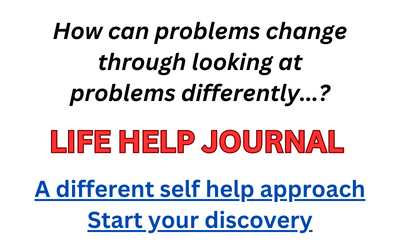I believe the pivoting process, as described by life teachers Abraham Hicks, is a particularly effective help technique and I recommend it. So what is pivoting? First, some background.
Abraham Hicks claim that negative emotional states are caused by thinking that is in opposition to our desires. They do not however, unlike some life teachers, consider negative emotional states to be an inherently bad thing; rather, they believe emotions — negative and positive — are part of our natural “guidance system”.
Negative emotions are our guidance system communicating to us that we are honed in on something we do not want. Abraham Hicks’ remedy for negative emotions is to change our thinking and mental focus from what we don’t want to what we do want. When we change our thinking in this way our emotional state changes from negative to positive — our guidance system is now communicating to us that we’re back on track.
Here’s an example of how pivoting works. We become aware of a negative emotional state. At this point we consider our thinking and what it’s telling us about what we presently don’t want or don’t like. From this we can discern what it is that we do want, or what desire of ours is being somehow opposed by our present thinking.
Once we know what we do want, we can change our thinking to focus upon that. This can be as simple as coming up with the thought I want to have more money in place of thinking that was expressing concern about our financial circumstances.
The foundation of pivoting is to focus upon what you do want and not what you do not want. Though it sounds like a simple strategy, and it is, you may be surprised to find how much mood changes for the better by doing this one thing. You may also be surprised to observe just how often you think about things that you really do not want.
An important secondary result of pivoting is that consistent focus impacts manifestation. In other words, that which you consistently focus upon often appears in your life. Do you want to be poor? If so frequently focus on financial lack. Do you want to maintain an unpleasant interpersonal relationship? If so focus frequently on the person you don’t like, and the things you don’t like about them.
By focusing upon what you actually want, and taking your focus off what you don’t want, what you want comes and what you don’t want leaves. This is an essential intentional manifestation teaching: many teachers and teachings say this very thing.
Even if you don’t believe in the manifestation aspect of it however, at the very least you will find that pivoting enhances your emotional state of being. If it only ever does this then it’s quite valuable indeed.
As a final reminder, you can tell whether you’re pivoting properly by observing your emotional guidance system. If your new thinking does not result in a good emotional feeling, or at the very least a feeling of relief compared to your previous emotional state, then you are still thinking in a way that opposes your genuine desires.
Ask yourself What do I want? Try not to focus upon what you want from a sense of need or desperation. Thinking about what we desire — particularly from a place of ease versus need or stress — makes us feel good, and thinking about what we desire feels much different than thinking about what we do not want.
Learn more about Abraham Hicks and the pivoting process Here.

